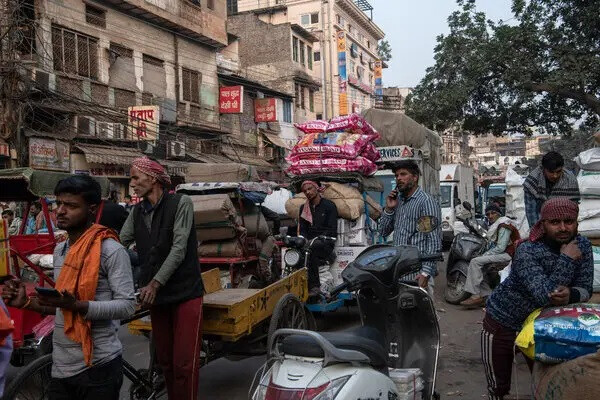
NEW DELHI – A wave of young, inexperienced Indian retail investors, lured by social media hype and easy online trading during the COVID-19 pandemic, experienced a harsh financial reckoning after the stock market bubble burst in late 2024.
Kanishk, Saloni Puj, and Ishan Shah are among the many who, driven by "FOMO" (Fear of Missing Out), plunged into the stock market. They were drawn by influencers’ promises of quick riches and the seemingly unstoppable market rally fueled by the Indian government’s $275 billion economic stimulus.
"The market was doing so well it felt anyone who was making any money was making it in the markets," said Shah, who admitted to buying stocks based on random tips.
National Stock Exchange (NSE) data reveals that the number of registered investors nearly tripled between March 2020 and March 2024, reaching 92 million. The NIFTY 50 index soared, giving many the impression that profits were guaranteed.
However, the euphoria ended abruptly. Since September 2024, Indian equities have lost over $1.2 trillion in value. The NIFTY 50 benchmark index plummeted, marking its longest losing streak since 1996, and becoming the worst performing global market.
Experts attribute the crash to several factors, including overvalued corporate valuations, a slowdown in India's GDP growth, and the withdrawal of funds by Foreign Institutional Investors (FIIs), who were drawn to China's stimulus measures.
"Many of these [retail] investors were uninformed and chased hyped-up securities, leading to froth in the market," said Sagun Agrawal, a derivatives trader and financial literacy advocate. "As corrections took place over the last six months, these investors faced major financial setbacks."
Bijoy Peter, a senior partner at Germinate Investor Services, highlighted the disparity between corporate valuations and earnings, as well as a lack of government infrastructure spending.
Adding to the uncertainty, US President Donald Trump’s threats of reciprocal tariffs on India have created further market jitters.
Despite recent market gains, retail investors like Kanishk, Shah, and Puj are now more cautious. Kanishk is taking financial influencer advice with skepticism, Shah has stopped trading altogether, and Puj has adopted a more conservative, long-term strategy.
"Going down is not so fun," Puj remarked, reflecting the shared sentiment of many who learned a hard lesson in the volatility of the stock market.
Economist Dr. Surjit Bhalla remains optimistic, viewing Trump's tariff threats as a potential catalyst for much-needed economic reforms in India. However, for many small investors, the recent market crash serves as a stark reminder of the risks involved in chasing quick profits.
[Copyright (c) Global Economic Times. All Rights Reserved.]



























